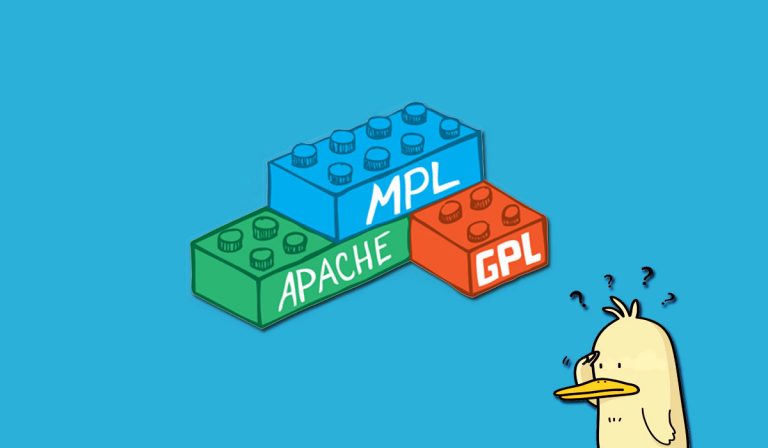An open-source license is a computer software license that allows the source code, blueprint, or design to be used, modified, and/or shared under defined terms and conditions. This license allows end-users and commercial companies to review and modify the source code, blueprint, or design for their own customization, curiosity, or troubleshooting needs.
The open-source licensed software is mostly available free of charge, though this does not necessarily have to be the case. Open-source licenses may have some restrictions (regarding the expression of respect to the origin of software) such as the requirement to preserve the name of the authors, the copyright statement within the code, or the requirement to redistribute the licensed software only under the same license (as in a copyleft license).
Contents
Open-source software licenses
Below is the list of different types of open sources licenses and their differences:
1. GNU General Public License
There is no limit and minimum times to how and where you can copy the code. You can copy it on your own server, on somebody else’s server, or on your local workstations, almost anywhere regardless. You can also distribute the code under this license with a download link, you can print out the code on paper or whatever form of distribution you want even a copy on a hard drive. And yes, you can charge someone for the software, however, you have to give them a copy of GNU GPL which would tell them that they could get the software free from elsewhere.
Moreover, you can also change the codebase. If you want to fork the project and make changes to it, you can. Remove or add features howsoever you want with the condition that your project should also be released under GNU GPL.
2. GNU Lesser General Public License
This grants fewer rights to work than GNU GPL. It is appropriate to use for libraries and projects that want to allow linking from non-GPL and non-open-source software. GPL requires any other project or source that is using the project under GPL to also be licensed as GPL however, GPL licensed code can’t be used for paid and proprietary software. LGPL cancels it out by not requiring other projects with parts of the code to be similarly licensed.
3. BSD License
BSD has much fewer restrictions on the distribution as compared to other free software licenses. Two important versions are the New BSD License / The New Modified BSD License and the Simplified BSD License / FreeBSD License, both open-source licenses.
The New BSD License allows unlimited redistribution for any purpose, as long as the copyrights and disclaimers of warranty of the license are maintained. This license comes with a unique requirement. What if someone used some famous person’s code and made changes to make a new project, she or he can’t use that person’s name to endorse it. That is the difference between the New and the Simplified BSD License, simplified BSD licenses do not have this clause.
4. Creative Commons
These licenses are not quite open-source. They are common for design projects. A wide variety of them is available each granting particular and certain rights. A CC License has four basic parts: Accreditation, the author must be attributed as the creator of the work. Then, work can be modified, distributed, copied, used otherwise. Shared with CC, your work can be modified, distributed but only under CC License. Non-Commercial, Work is not for commercial purposes. No Derivative Works, you can copy and distribute the licensed work but you can’t modify it in any way or create work based on the origin. However, not all CC Licenses have this limitation.
5. MIT License
It’s the most used open-source license. Its terms are more open than most others. As quoted, “Permission is hereby granted, free of charge, to any person obtaining a copy of this software and associated documentation files, to deal in the Software without restriction, including without limitation the rights to use, copy, modify, merge, publish, distribute, sublicense, and/or sell copies of the Software, and to permit persons to whom the Software is furnished to do so” subject to the conditions.
6. APACHE LICENSE
Its rights are never-ending meaning once the rights under Apache License have been granted, you can continue to use them forever. The worldwide authority of rights is also granted and there is a right for no fee or royalty. Rights are also irrevocable, no one can ever say to you that your derivative of the code that was licensed under this license can’t be in use anymore.
However, redistribution of the code has requirements, mainly related to proper credit to those who’ve worked on the code and maintaining the license.

